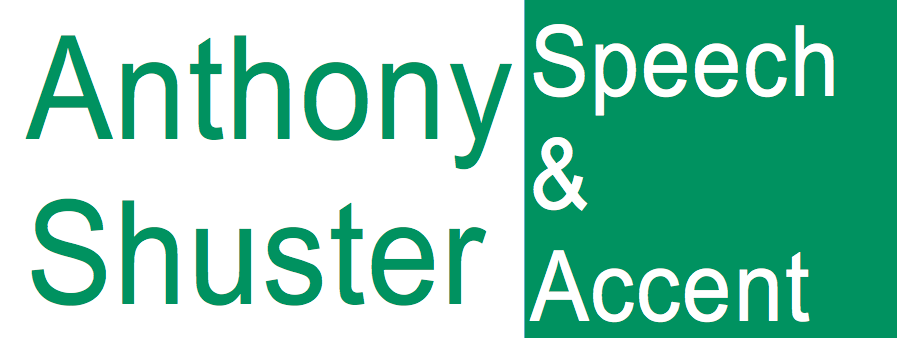How to sound authentic, part 2
Professional voiceover should never sound fake: this stock photo model is clearly not being fake, at all
Can you sound 'too professional'?
This time yesterday, I found myself asking a group of professionals to try to sound as unprofessional as possible.
I was running an online workshop for the OneVoice Conference 2024 in London; the professionals (and semi-professionals) were voiceover artists from all over the world.
And to these attendees, my challenge was this: can you sound 'authentic', and still sound professional?
Authentic vs. professional?
As I wrote here in October, the buzzword in the voiceover industry at the moment is AUTHENTICITY.
Clients in advertising, e-learning, documentary voiceover and many other parts of the industry, are asking for voices that sound 'authentic' - not too slick, not too polished; not too perfect. Something that sounds like a ‘real person’, who's friendly, approachable, and sincere - maybe a bit imperfect?
In other words, they don't want what most people think of as 'professional' voiceover!
As you can imagine, this is problematic for artists who've built careers on delivering slick, polished, professional-sounding voiceover.
There's so much voiceover on Instagram YouTube and Tiktok being done by non-professionals, that a style is developing - what I have taken to calling the ''Gramateur' style of speaking.
So we spent the workshop listening closely to examplse of this new style, and trying it out.
Then when clients ask for an 'authentic-sounding' voice, the pros will be able to do what pros do best: listen to the clients’ needs, adapt, be creative and give them what they want.
And what clients want is, in truth, NOT an amateurish reading, but a reading that ticks all the boxes - pace, clarity, getting the right feel - but still sounds like you're just having a chat with a trusted friend.
A tricky balance, but that’s the mark of a professional: they know what they’re doing.
So - if you're not a pro VO artist, what does all this have to do with you?
Here are some of the speech mannerisms that characterise the ''Gramateur' style:
Flat tone: colourless or monotonous voices tend to be boring and hard to follow…zzz
Upspeak: the opposite of monotone?
this is a mannerism that is really common? in everyday speech? but it's almost always completely absent? from professional speaking situations? I always say to my clients: 'does your CEO talk like this? when she delivers a keynote address? to important stakeholders?' Answer: NO
'Plane coming in to land'
I first encountered this idea from the YouTuber Ali Abdaal, and I talked about his speaking style in a Youtube video of my own from a couple of years ago. Starting to speak on a high note, and then gradually going down and down... it's a close cousin of 'shopping list' tone, but generally harmless - although if you come to rely on it , it just becomes repetitive.
Speaking too fast
The number one problematic speech habit that people raise with me when they email to explain why they want to get some speech coaching! Rapid speech is really common on social media, but unlike in life, on socials you can pause it, watch it again, slow it down...
Here's the thing: these are all speech habits that I work with my clients to avoid!
Why? What's wrong with sounding like this?
Nothing, in small doses.
But these are the sorts of speech habits I encounter in people who come to me, looking for help, because when they speak they feel unconfident, nervous, insecure; they think people aren't taking them seriously, or are judging them adversely, or just not really listening.
These are the issues we tend to discuss in the free 1-hr online taster session that I offer people who are curious about working on their speaking skills.
People often come to me for a free taster session because they want to sound more 'professional' - they're getting promoted, or they're going back into the workforce after raising children, or they're starting a business and they need to make the right impresssion on investors and customers.
Or they're not progressing in their career as swiftly as they want to; they know their stuff, their work is top quality, but it's the communication skills that hold them back.
And what i tend to find is that boosting their confidence and becoming a more effective speaker is mainly about taking control of their speech habits.
It's about recognising when you slip into 'shopping list' mode; noticing that you're speaking quickly, and remembering to pause more. It's about understanding that upspeak can have the unintended effect of making you sound unsure of yourself, when you're actually feeling pretty confident.
You control your speaking; your speaking doesn’t control you
It's about speaking consciously and deliberately, so that you are in control of the impression you make when you speak, without - this is the crucial bit - putting on a 'fake' voice and pretending to be someone you're not.
Funnily enough - just like professional voiceover artists! These are people with the skills and versatility to give the client exactly what they want, to adapt to their needs, and do a fun-&-chatty advert for fruit smoothies one moment, and serious no-nonsense voiceover for a true crime documentary the next, and make it all sound like a real human being.
So, ironically, I’m encouraging pro voice artists to sound unprofessional - ie. like ordinary people.
It's the same process, just in reverse, to what I do with everyone else in my coaching practice.
I'm encouraging ordinary people to sound 'professional', by noticing their existing speech habits, taking control of them and choosing to sound the way they want to sound - confident, competent, and compelling.
Get in touch to talk to me about booking a free 1-hour taster session over Zoom or Teams, if you like the sound of that.
Thanks for reading :)

